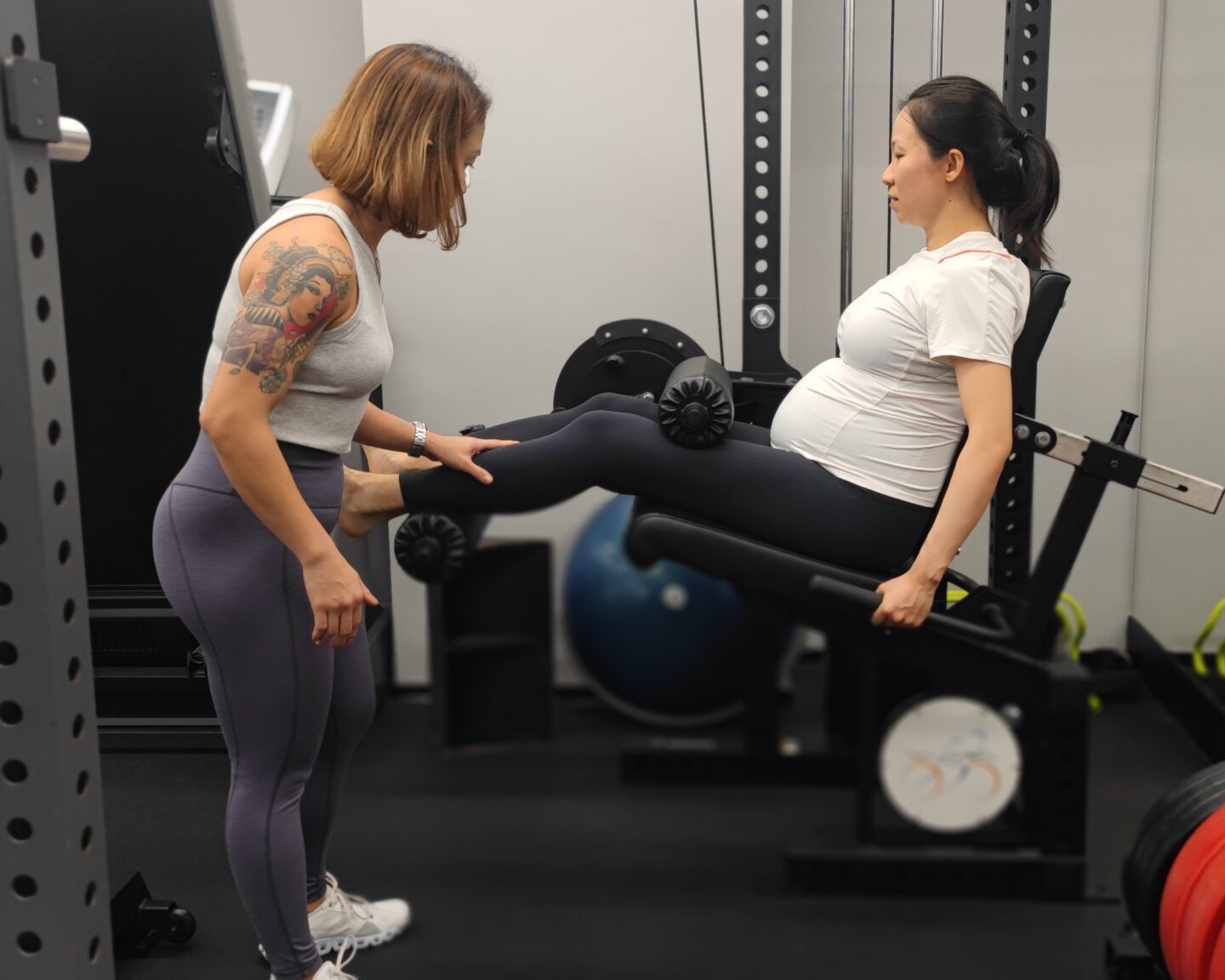Strength training can be incredibly beneficial for expectant mothers during pregnancy. It is a safe and empowering way to stay fit and strong while embracing the changes in your body. Although it may seem intimidating, research has shown that with proper guidance, strength training can boost your energy, improve your posture, and enhance your mood. Here are some of the benefits that resistance training can offer for expectant mothers: Your journey to strength starts here—let’s make every workout count with your personal trainer.
- Healthier and stronger babies
Significantly benefit the baby’s brain development and endorphin levels. Particularly, babies get a head start in neurodevelopment at birth and promote stronger hearts due to increased blood circulation from a regularly trained mom.
- Better prepared for delivery
Mothers who engage in regular training experience shorter, less stressful childbirths, lower risks of hypertension, and reduced birth weight. Better breathing control, stronger muscles, and higher muscle endurance also help in giving birth as it will be one of the most challenging workouts in all women’s lives!
- Feel confident!
Higher self-esteem, a better body image, and a higher energy level are some benefits of exercise. Strength training can also reduce the risk of postpartum depression.
- Maintain good posture!
70% of pregnant women experience back pain throughout late trimesters, strength straining that targets the posterior chain can improve your posture and can help relieve back pain.
- Healthier breastmilk for your babies
The latest research shows that mothers who perform high-intensity training have higher adiponectin levels. Low levels of this hormone are associated with insulin resistance and type 2 diabetes. The composition of breast milk can be influenced by the mother’s body mass index. Differences in breast milk composition may contribute to the transfer of obesity from mother to child. Learn more about our services—visit Hong Kong Sports Clinic .
Common Questions on Strength Training During Pregnancy
- Is it safe to perform any squat movements?
Research suggests that heavy resistance training, such as Olympic-level weightlifting, does not harm pregnancy outcomes or pelvic floor health. However, precautions are advised for weight training during pregnancy, including avoiding prolonged back lying and overhead lifting to prevent spinal curvature and lower back pain. Squats are safe throughout all trimesters in uncomplicated pregnancies with medical clearance. Besides, the growing fetus can weaken pelvic floor muscles, leading to incontinence during pregnancy and beyond. To address this, a comprehensive exercise program involving transverse abdominis activation, Kegel exercises, and squats can strengthen pelvic floor muscles in women (Pires et al., 2020).
- Will deadlifting be too physically demanding for my back?
Pregnancy often brings back pain due to the loosening of tendons caused by the hormone Relaxin. Apart from this, as the breasts enlarge, the shoulders may round forward. To prevent low back discomfort, strengthening the muscles in the posterior chain and the muscles between the shoulder blades can help counteract this slumped posture.
- Will core training increase risks of diastasis recti (abdominal muscles separation)
Having a strong core is essential during pregnancy. It not only helps reduce back pain by reinforcing good posture and supporting the spine as the baby grows but also prepares the body for labor. The best exercises for strengthening the core should focus on the deepest core muscles, including the transverse abdominis and pelvic floor. Pilates is a great way to target these muscles more effectively. Building a solid foundation through exercising will also help with faster recovery after labor.
- Does exercise induce miscarriage?
Concerns about miscarriage related to exercise during pregnancy appear to be unfounded, as research suggests that spontaneous abortion is not associated with the level of physical activity. A randomized controlled study comparing resistance training to a control group found no link between exercise and premature delivery, and exercise did not have any negative effects on gestational age.
Schöenfeld, B. J. (2011). Resistance training during Pregnancy: Safe and effective program design. Strength and Conditioning Journal, 33(5), 67–75. https://doi.org/10.1519/ssc.0b013e31822ec2d8
Holmen, M. M., Giskeødegård, G. F., & Moholdt, T. (2023). High-intensity exercise increases breast milk adiponectin concentrations: a randomised cross-over study. Frontiers in Nutrition, 10. https://doi.org/10.3389/fnut.2023.1275508
Pires, T., Pires, P., Costa, R., & Viana, R. (2020). Effects of pelvic floor muscle training in pregnant women. Porto Biomedical Journal, 5(5), e077. https://doi.org/10.1097/j.pbj.0000000000000077
Prevett, C., Kimber, M. L., Forner, L., De Vivo, M., & Davenport, M. H. (2022). Impact of heavy resistance training on pregnancy and postpartum health outcomes. International Urogynecology Journal, 34(2), 405–411. https://doi.org/10.1007/s00192-022-05393-1


